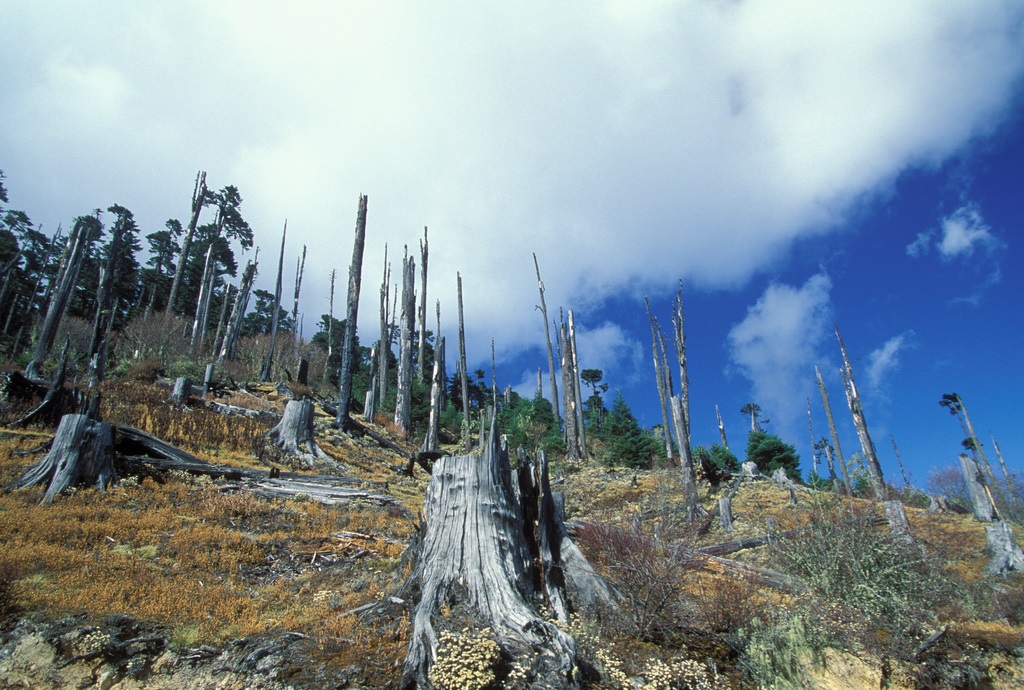The Peninsula
Inter-Korean Cooperation on North Korean Reforestation

By Troy Stangarone
Since the first summit meeting between South Korean President Moon Jae-in and North Korean Chairman Kim Jong-un in April, efforts by North and South Korea to repair and reconnect road and rail lines on the Korean Peninsula have received significant attention, including the recent announcement that they will be holding a groundbreaking ceremony on December 26. In contrast, South Korean efforts to aid North Korea with reforestation have received relatively less attention.
While the road and rail projects may have a clear impact in enhancing economic activity in North Korea by improving the ability to move goods from factories and farms to market, the work to restore North Korean forests will also play an increasingly important role in the country’s economic recovery.
Since economic hardships began in the 1990s, North Korea has seen its forest cover decline. From 1980 to 2000, forest cover in North Korea is estimated to have declined from 9,171,700 hectares to 7,085,800 hectares. After 2000, estimates are less clear. According to the World Bank deforestation has continued, as North Korea’s forest cover has dropped from 68 percent of the country to only 42 percent in 2015. However, according to Global Forest Watch, forest cover declined by another 198,000 hectares, or 3.8 percent since 2000, and now covers only 33 percent of the country. While only 34 percent of the United States is covered by forests, 65 percent of South Korea is forested today.
While the estimates of the extent of deforestation vary, work by the United Nations has concluded that there is a linear relationship to increasing flood vulnerability in North Korea and deforestation. That link between deforestation and flooding has economic consequences for North Korea. Increased deforestation and flooding contribute to soil erosion and reduced agricultural production. It also can lead to water loss which reduces the efficiency of hydroelectric power, a key source of power generation in North Korea.
Increased flooding also has a human toll. In 2016, the UN and International Red Cross reported that 133 people died and tens of thousands were displaced in North Korea by flooding from Typhoon Lionrock. Beyond the immediate human toll, homes and crops were destroyed by the flooding. In a nation chronically short of food, taking steps to reduce the destructive force of flooding will have positive effects on nutrition and economic growth.
Restoring North Korea’s forests will be a long-term process. South Korea began the process of restoring its forests in the 1960s, but today those forests are estimated to be worth 10 percent of South Korea’s GDP.
To date inter-Korean cooperation has focused on discussions around developing a cooperation plan that does not violate sanctions and deals with issues such as pest control, the modernization of North Korea’s tree farms, and technological exchange. The first significant step took place in late November when South Korea sent 50 tons of non-sanctioned pesticides to North Korea to fight pine tree diseases. In the long-run, North Korea will need South Korean and international expertise to develop a sustainable reforestation plan.
Should international sanctions become an obstacle to work on reforestation, this is one area where a waiver by the United Nations might be advisable. Work to reverse environmental damage in North Korea could have benefits that include reduced flooding and soil erosion, which would assist agricultural production. Additionally, while concerns about the diversion of resources by the North Korean regime to its weapons programs will remain a concern for the foreseeable future, reforestation is one area where even if the regime were hoping to harvest the lumber for export any financial benefits it might gain from reforestation would not be in the near term.
Troy Stangarone is the Senior Director for Congressional Affairs and Trade at the Korea Economic Institute of America (KEI). The views expressed here are the author’s alone.
Photo from the World Bank Photo Collection’s photostream on flickr Creative Commons.
